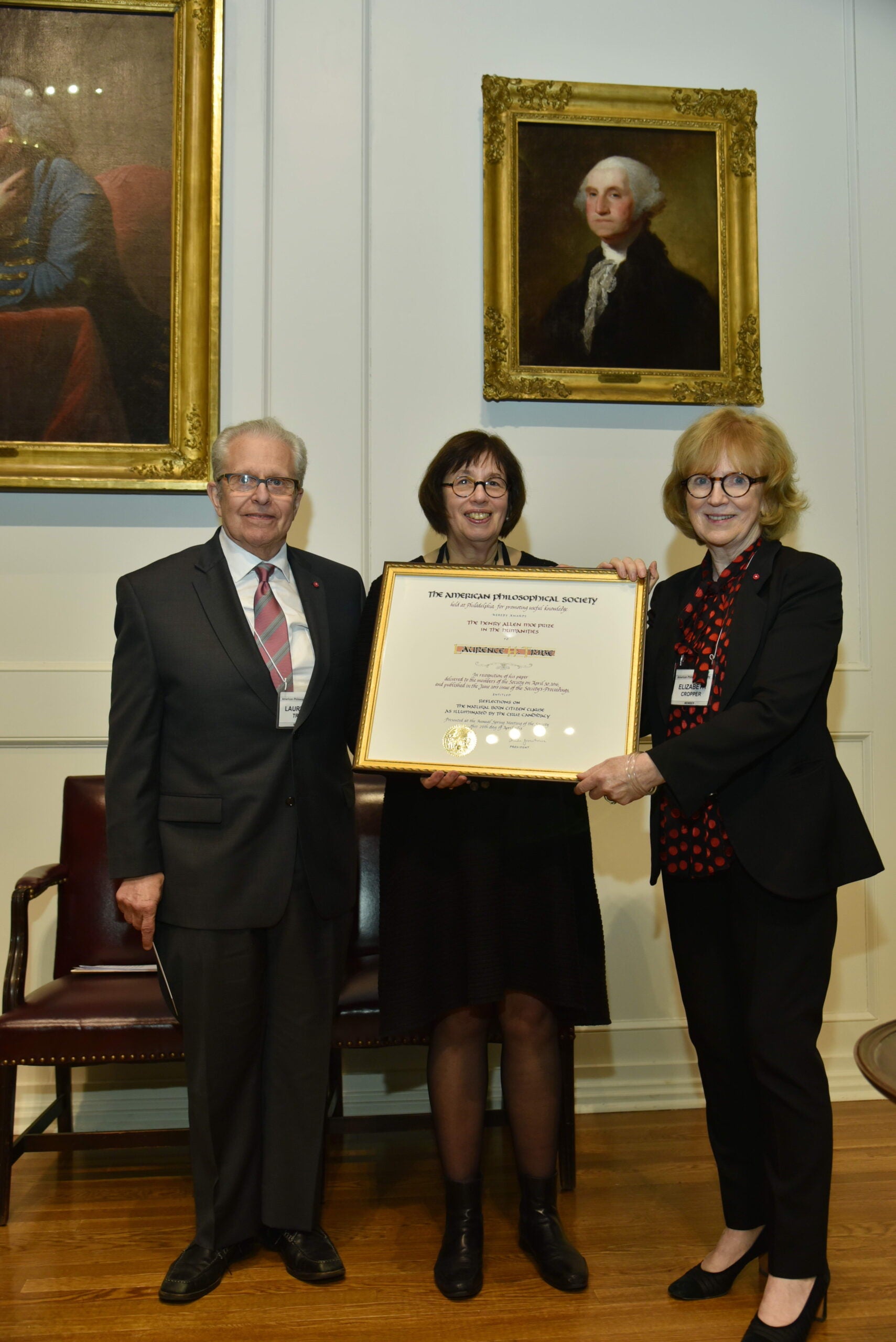
Laurence H. Tribe ’66, the Carl M. Loeb University Professor and Professor of Constitutional Law at Harvard Law School received the American Philosophical Society’s 2018 Henry Allen Moe Prize in the Humanities at the Society’s April meeting. Tribe was recognized for his paper “Reflections on the ‘Natural Born Citizen’ Clause as Illuminated by the Cruz Candidacy,” which was based on remarks he delivered at the Spring 2016 meeting of the American Philosophical Society in Philadelphia. Tribe’s essay was printed in the June 2017 edition of “Proceedings.”
In the article, Tribe considers the “Natural Born Citizen” Clause in Article II of the Constitution and the ensuing debate over the meaning of the clause’s explicit language. Tribe’s argument confronts the fact that the Supreme Court has never ruled on whether being a citizen at birth by grace of federal statutes is sufficient to establish “natural born” citizenship. While considering the problems raised by Senator Ted Cruz’s birth status and his qualification to hold the presidency, Tribe unpacks the intricacies of the technical interpretation of the clause and explores how this technical limitation on eligibility should be changed to better reflect our evolving values.
In a press release announcing the prize, Tribe’s essay was lauded “for its clarity, its scholarship, its quietly subversive humor, its learned and respectful critique of “originalists,” and its articulation of the significance of the clause against a backdrop of the nation’s continuing aspiration for greater equality of its citizens. It demonstrates in an understated yet eloquent way that jurisprudence has a place among the humanities.”
A renowned professor of constitutional law, Tribe joined the Harvard Law School faculty in 1968, received tenure in 1972, and held the Ralph S. Tyler, Jr. Professorship in Constitutional Law from 1982 to 2004, when he was appointed University Professor—the highest academic honor that Harvard University can bestow upon a faculty member, reserved for just a handful of professors throughout the university.
Tribe is the author of more than 115 books and articles, including his treatise, American Constitutional Law, cited more than any other legal text since 1950. He has argued 35 cases before the Supreme Court of the United States-—including the historic Bush v. Gore case in 2000 on behalf of presidential candidate Albert Gore, Jr.—-and he has testified frequently before Congress on a broad range of constitutional issues. He has helped write the constitutions of South Africa, the Czech Republic, and the Marshall Islands, and he has received eleven honorary degrees, most recently a degree honoris causa from the Government of Mexico in March 2011.
The Henry Allen Moe Prize was established in 1982 by a gift from the widow of Henry Allen Moe, who was the longtime head of the Guggenheim Foundation and president of the American Philosophical Society from 1959 to 1970. The prize is awarded annually to the author of a paper in the humanities or jurisprudence read at a meeting of the Society.
